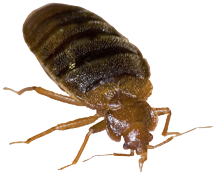Naturally, their reproduction plays a significant part in the scale and rate of infestation. After “traumatic insemination” bed bugs will lay their eggs on surfaces, which can be transported passively onto other materials, luggage and so on. In this same way, the bed bugs themselves (who cannot fly) can be moved.
This is one of the most efficient ways for the population, and, therefore, for the infestation to spread. In fact, bed bugs will travel anything between five and twenty feet to find a host on which to feed. And being nocturnal feeders, sleeping humans make easy meals, but they will also feed on other mammals, birds and rodents.
How Bed Bugs Affect You
Whilst bed bugs aren’t considered to carry diseases; their feeding can incite nasty skin irritation, as well as a lack of sleep and energy, or listlessness. Their bites can be hard, white swellings, but their reactions and severity can vary.For any property suffering a bed bug infestation is “in a verminous condition” according to the Public Health Act 1936, the owners of these properties are obliged by law to seek professional treatment.
Other unpleasant effects of a bed bug infestation include the distinctive, musty, almond-like smell emitted by the insects, as well as the speckled excrement they leave. However, these same things are a good indication as to whether or not you have an infestation.
So if your property is displaying symptoms of an infestation, or suffering from one outright, call us and make use of our experience and specialist bed bug pest control services. We will provide a free inspection of the property, as well as an on-site report, before discussing the problem and any further advice or treatment.
We can then rid your property of bed bugs 24 hours a day, using safe extermination. All we ask is that you vacuum and wash any soft furnishings or clothing you suspect could be infested, to ensure our procedures are as effective and successful as possible.



